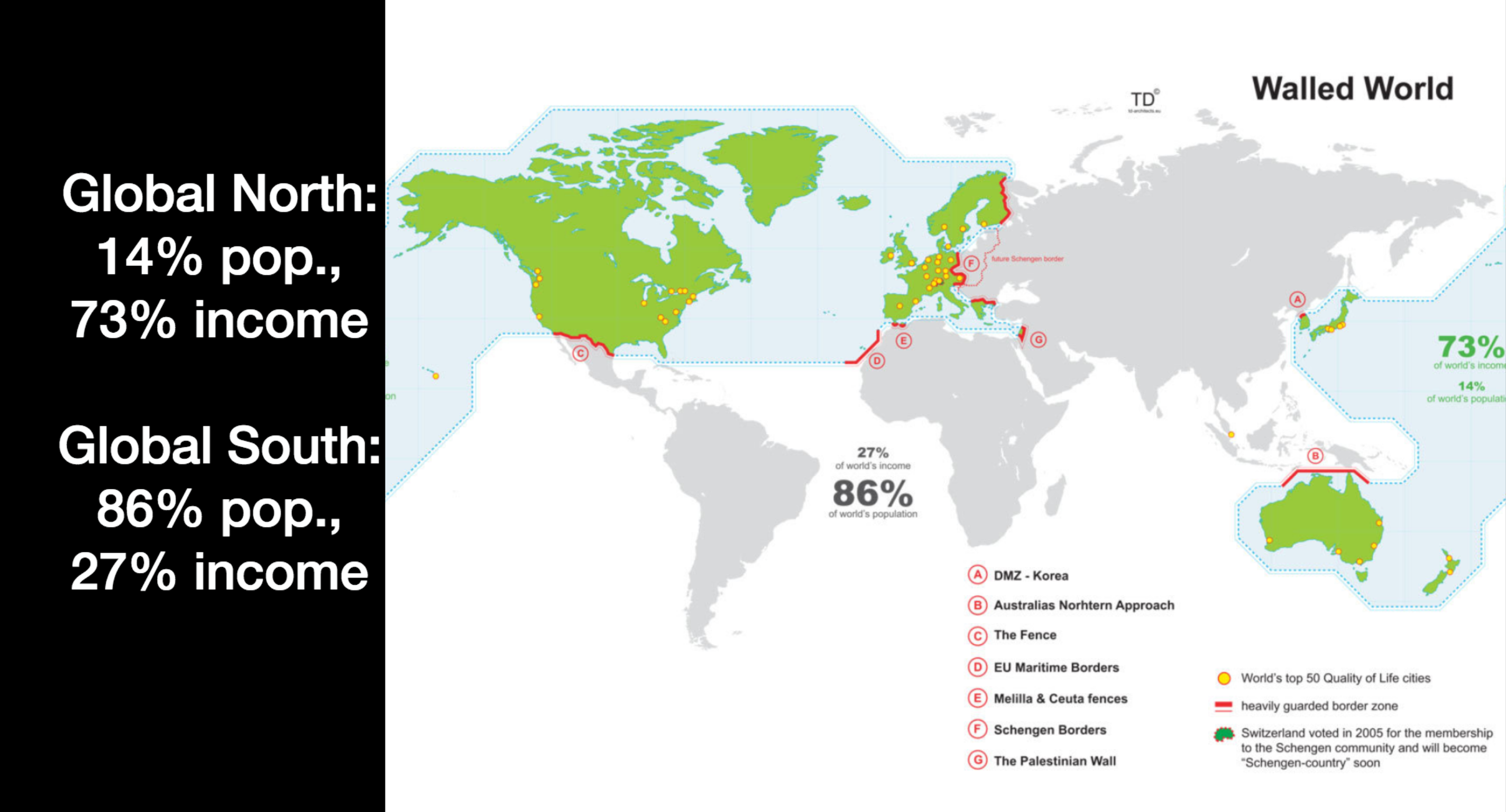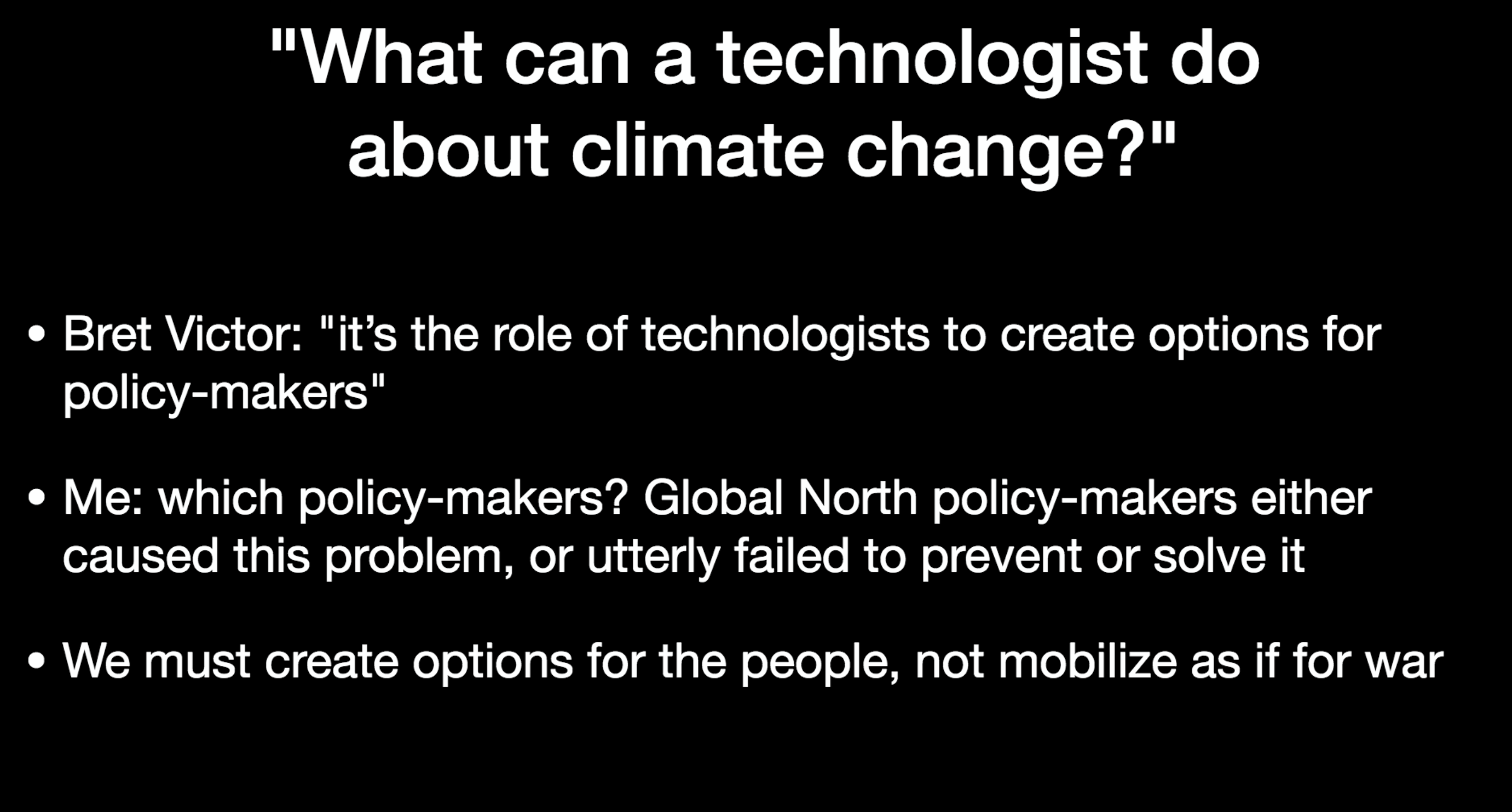Computing, Climate change and all your relationships
Generally speaking, it's a small, but growing group of folk who seem to interested in the intersection between climate change and tech.
Earlier in May, I came across Nabil Hussein's talk, Computing, Climate Change and All Your Relationships, and boy is it a breath of fresh air - climate change for me is a very much an issue about fairness, and treating humans with basic decency, regardless of where in the world they are.
This is and remains on of the reasons I'm attracted to the web - as Tim Berners Lee said, it's supposed to be a tool for everyone, not just a small group, and that human potential it allows us to unlock is a source of continuous wonder for me.
[caption id="" align="alignnone" width="1024"] Tim Berners Lee, in the London Olympics, with his cameo for the world wide web[/caption]
Tim Berners Lee, in the London Olympics, with his cameo for the world wide web[/caption]
I've seen a fair few talks, but this is the first time I've seen someone in tech talk about climate change in terms of the sheer numbers of people who don't go to tech conferences who are affected, and how it disproportionately affects people least able to cope with the wrenching changes it's bringing about.
There was one slide in particular that was particularly effective here:
[caption id="attachment_3024" align="alignnone" width="2848"] Comparing the Global North (14% popn, 73% income) and Global South (86% popn, 27% income)[/caption]
Comparing the Global North (14% popn, 73% income) and Global South (86% popn, 27% income)[/caption]
Challenging Bret Viktor's "options" approach
This is also the first talk I've seen that critically engages with Bret Victor's essay, What Can an Technologist do about Climate Change?
We're seeing how policy makers in the White House have been undoing progress they've made, and you see the same patterns in the UK, with fracking over building a local renewables.

That said, I can't say I'm totally behind this approach. and I think, having a binary here is oversimplifying things. There's absolutely cases where in the global North you're seeing terrible decisions, but there are also cases where you are seeing progress being made, and that helps set the tone for future, more progressive, climate friendly policy.
For example, I see the investment by Germany in renewables over the last 20 years pretty important for decentralising how power is generated over here: both to bring down costs sufficiently to 'create options for people', and also counter the concentration of power among the incumbent providers of energy, and encouraing many more small scale producers of energy from renewables.
I guess the counterpoint here is that China, which (on this map at least, is included in the global south) has also played a huge part in shifting the economics of solar, but that's hardly been a bottom-up approach. It's been a very deliberate policy decision, the same way China's National Sword policy was a top down decision to stop importing so much waste from the global north.
Anyway, it's totally worth 40 minutes of your time if you have a passing interest in climate change, and you work in tech. There's also a super handy transcript online too. Enjoy!